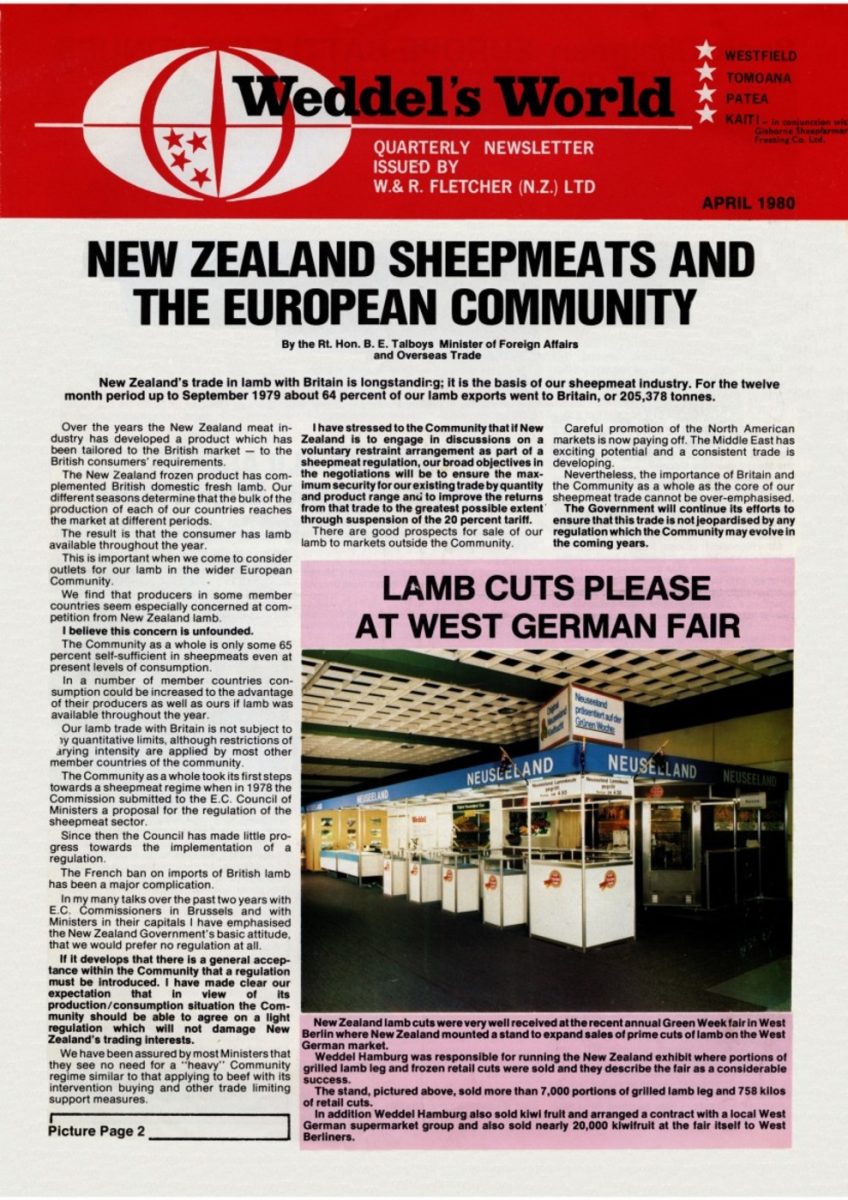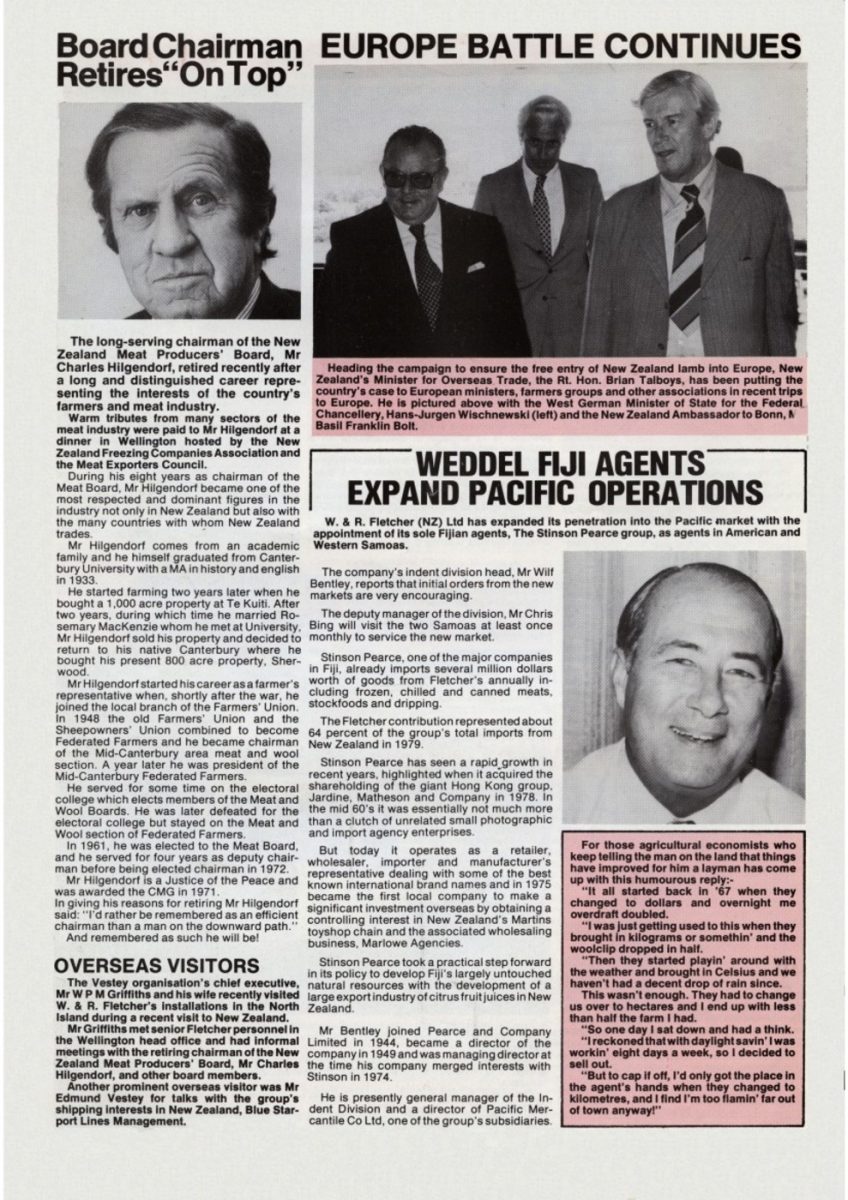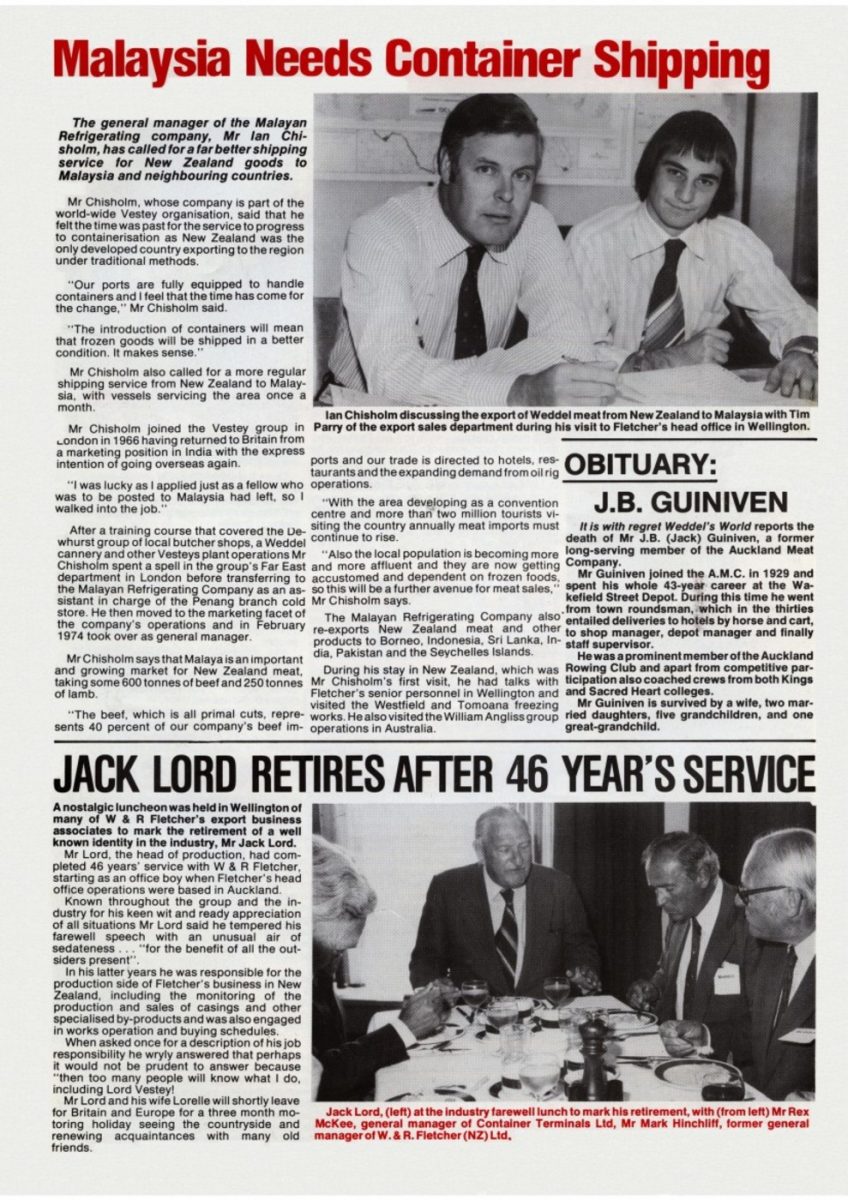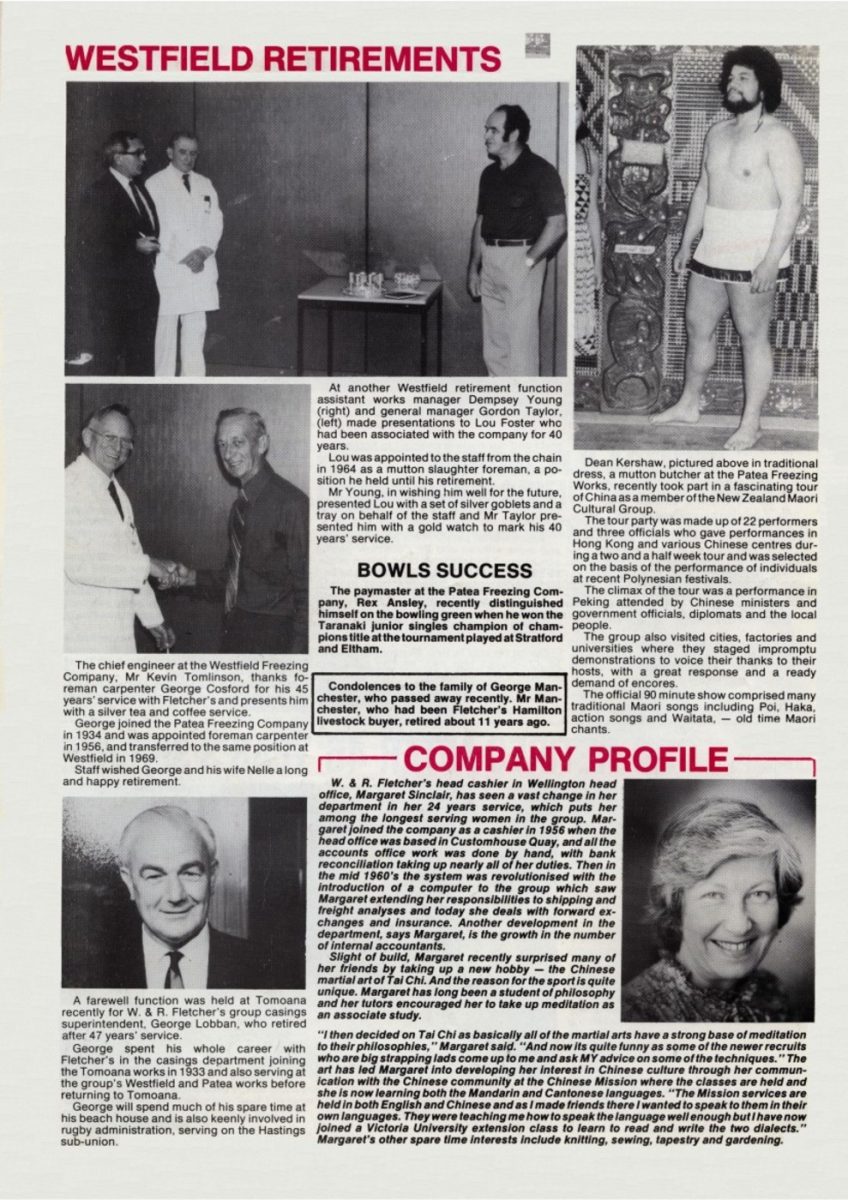Board Chairman Retires“On Top”
The long-serving chairman of the New Zealand Meat Producers’ Board, Mr Charles Hilgendorf, retired recently after a long and distinguished career representing the interests of the country’s farmers and meat industry.
Warm tributes from many sectors of the meat industry were paid to Mr Hilgendorf at a dinner in Wellington hosted by the New Zealand Freezing Companies Association and the Meat Exporters Council.
During his eight years as chairman of the Meat Board, Mr Hilgendorf became one of the most respected and dominant figures in the industry not only in New Zealand but also with the many countries with whom New Zealand trades.
Mr Hilgendorf comes from an academic family and he himself graduated from Canterbury University with a MA in history and english in 1933.
He started farming two years later when he bought a 1,000 acre property at Te Kuiti. After two years, during which time he married Rosemary MacKenzie whom he met at University, Mr Hilgendorf sold his property and decided to return to his native Canterbury where he bought his present 800 acre property, Sherwood.
Mr Hilgendorf started his career as a farmer’s representative when, shortly after the war, he joined the local branch of the Farmers’ Union. In 1948 the old Farmers’ Union and the Sheepowners’ Union combined to become Federated Farmers and he became chairman of the Mid-Canterbury area meat and wool section. A year later he was president of the Mid-Canterbury Federated Farmers.
He served for some time on the electoral college which elects members of the Meat and Wool Boards. He was later defeated for the electoral college but stayed on the Meat and Wool section of Federated Farmers.
In 1961, he was elected to the Meat Board, and he served for four years as deputy chairman before being elected chairman in 1972.
Mr Hilgendorf is a Justice of the Peace and was awarded the CMG in 1971.
In giving his reasons for retiring Mr Hilgendorf said: “I’d rather be remembered as an efficient chairman than a man on the downward path.”
And remembered as such he will be!
OVERSEAS VISITORS
The Vestey organisation’s chief executive, Mr W P M Griffiths and his wife recently visited W. & R. Fletcher’s installations in the North Island during a recent visit to New Zealand.
Mr Griffiths met senior Fletcher personnel in the Wellington head office and had informal meetings with the retiring chairman of the New Zealand Meat Producers’ Board, Mr Charles Hilgendorf, and other board members.
Another prominent overseas visitor was Mr Edmund Vestey for talks with the group’s shipping interests in New Zealand, Blue Star port Lines Management.
EUROPE BATTLE CONTINUES
Heading the campaign to ensure the free entry of New Zealand lamb into Europe, New Zealand’s Minister for Overseas Trade, The Rt. Hon. Brian Talboys, has been putting the country’s case to European ministers, farmers groups and other associations in recent trips to Europe. He is pictured above with the West German Minister of State for the Federal Chancellery, Hans-Jurgen Wischnewski (left) and the New Zealand Ambassador to Bonn, Mr Basil Franklin Bolt.
WEDDEL FIJI AGENTS EXPAND PACIFIC OPERATIONS
W. & R. Fletcher (NZ) Ltd has expanded its penetration into the Pacific market with the appointment of its sole Fijian agents, The Stinson Pearce group, as agents in American and Western Samoas.
The company’s indent division head, Mr Wilf Bentley, reports that initial orders from the new markets are very encouraging.
The deputy manager of the division, Mr Chris Bing will visit the two Samoas at least once monthly to service the new market.
Stinson Pearce, one of the major companies in Fiji, already imports several million dollars worth of goods from Fletcher’s annually including frozen, chilled and canned meats, stockfoods and dripping.
The Fletcher contribution represented about 64 percent of the group’s total imports from New Zealand in 1979.
Stinson Pearce has seen a rapid growth in recent years, highlighted when it acquired the shareholding of the giant Hong Kong group, Jardine, Matheson and Company in 1978. In the mid 60’s it was essentially not much more than a clutch of unrelated small photographic and import agency enterprises.
But today it operates as a retailer, wholesaler, importer and manufacturer’s representative dealing with some of the best known international brand names and in 1975 became the first local company to make a significant investment overseas by obtaining a controlling interest in New Zealand’s Martins toyshop chain and the associated wholesaling business, Marlowe Agencies.
Stinson Pearce took a practical step forward in its policy to develop Fiji’s largely untouched natural resources with the development of a large export industry of citrus fruit juices in New Zealand.
Mr Bentley joined Pearce and Company Limited in 1944, became a director of the company in 1949 and was managing director at the time his company merged interests with Stinson in 1974.
He is presently general manager of the Indent Division and a director of Pacific Mercantile Co Ltd, one of the group’s subsidiaries.
For those agricultural economists who keep telling the man on the land that things have improved for him a layman has come up with this humourous reply:-
“It all started back in ’67 when they changed to dollars and overnight me overdraft doubled.
“I was just getting used to this when they brought in kilograms or somethin’ and the woolclip dropped in half.
“Then they started playin’ around with the weather and brought in Celsius and we haven’t had a decent drop of rain since.
This wasn’t enough. They had to change us over to hectares and I end up with less than half the farm I had.
“So one day I sat down and had a think.
“I reckoned that with daylight savin’ I was workin’ eight days a week, so I decided to sell out.
“But to cap it off, I’d only got the place in the agent’s hands when they changed to kilometres, and I find I’m too flamin’ far out of town anyway!”















Do you know something about this record?
Please note we cannot verify the accuracy of any information posted by the community.